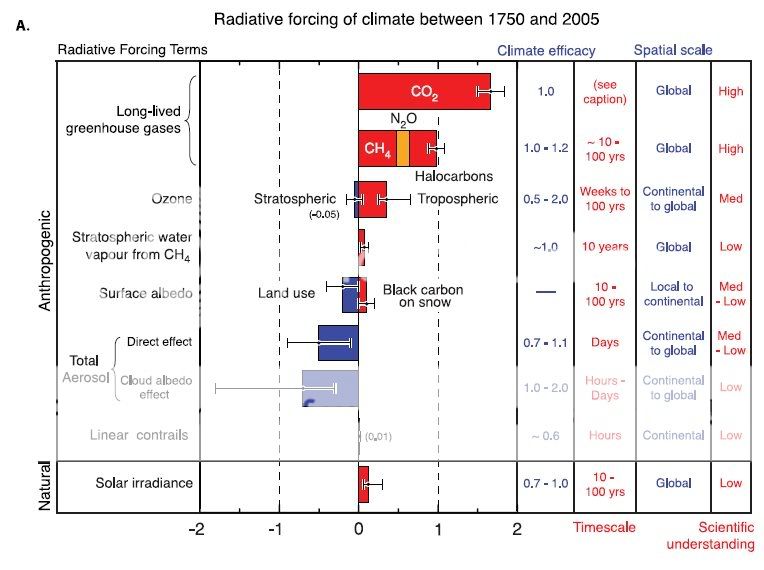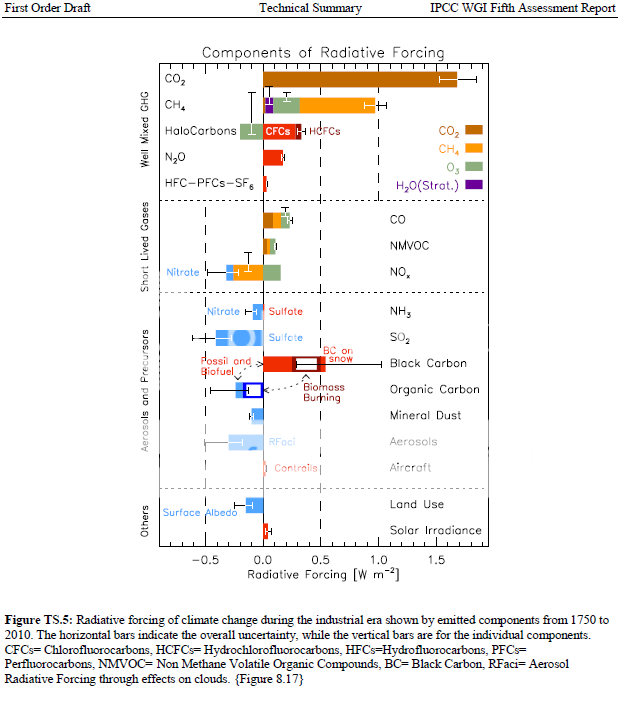Mithros said:
Because you haven't actually addressed any research yet you still call it a "religion". Then you assume that climate scientists are a monolithic block driven by a singular ideology.
It gets pretty complicated to do so. How are you at writing and explaining one's complete thought process of how something works? I have addressed a few relevant point in examples most readers can understand, if the have basic science skills. Beyond that, debate is pointless. It becomes an argument like "my daddy can beat up your daddy." We can have google wars and see who can come up with the latest, greatest research on either side, but if the readers here do not understand the research, it is just a numbers game. And admittedly, I would lose such a numbers game. Hence my tactics of being able to explain in my own words, making some mistakes along the way, but learning more in the process as well.
Mithros said:
Obviously the earth is getting warmer. Your entire explanation, as far as I can gather is that you believe that we're in a natural warming period. But this isn't scientific reasoning. It's what's left after you ignore any possibility that mankind has effected the climate. That's a dogmatic belief, not a rational one.
You have not digested my words well if you believe that. AGW is real, and my claim is the 2nd and maybe 3rd cause of warming.
1) Natural solar changes - natural
2) Black carbon on ice (soot) - AGW
3 or 4) CO2 -AGW
3 or 4) ENSO - natural
Mithros said:
Lets assume that you were correct. Say that increased solar energy was responsible at least in part for the warming. We'd expect that this increase would also increase pan evaporation rates. (That's the amount of water that evaporates naturally from a pan. Farmers have used and recorded it for a long time to determine how much water their crops need).
And the trend does follow solar intensity that makes it through the atmosphere. We have a downward trend in evaporation from about 1960 to about 1975, as we dulled the skies with pollution. Hard to distinguish if pollution cause this as we also had a minor solar activity drop too. The rate then increased again until about the same time we see temperatures stabilizing, and a 30+ year relatively stable sun.
When the sun changes in intensity, more of the change is in the shorter wavelengths. Almost all greenhouse gas down forcing is absorbed in the top 1 mm of the water. At the wavelengths CO2 is responsible, most is absorbed in the top 3 microns of water. This is where CO2 and wind combined will actually influence evaporation rates more than any other changes. Convection is a pretty small effect compared to waves of light we cannot see. There is probably more CO2 downforcing than the solar energy absorbed in the top 1 mm, but the sun will warm the top several meter far more than the greenhouse effect. hard to make a guess at which effect the evaporation rate the most. Co2 however does have a significant effect.
As for the rates? have we been decreasing in evaporation? I know we have areas of drought, but at the same time we have areas of excess rain and more flooding than normal. I though we were having more absorbed water, not less. Didn't I read somewhere we have a momentary drop in sea level of 5 mm?
Am I wrong? I think not. Here is a NOAA link:

Mithros said:
But, over the last 50 years, we see a steady decline in pan evaporation. This would indicate global radiative dimming as well as an accelerating hydrologic cycle. Basically, the sun is getting dimmer, and the earth is getting warmer.
Pan evaporation rate where? In areas that windmills are changing the airflow away from?
That would be anthropogenic climate change wouldn't it?



